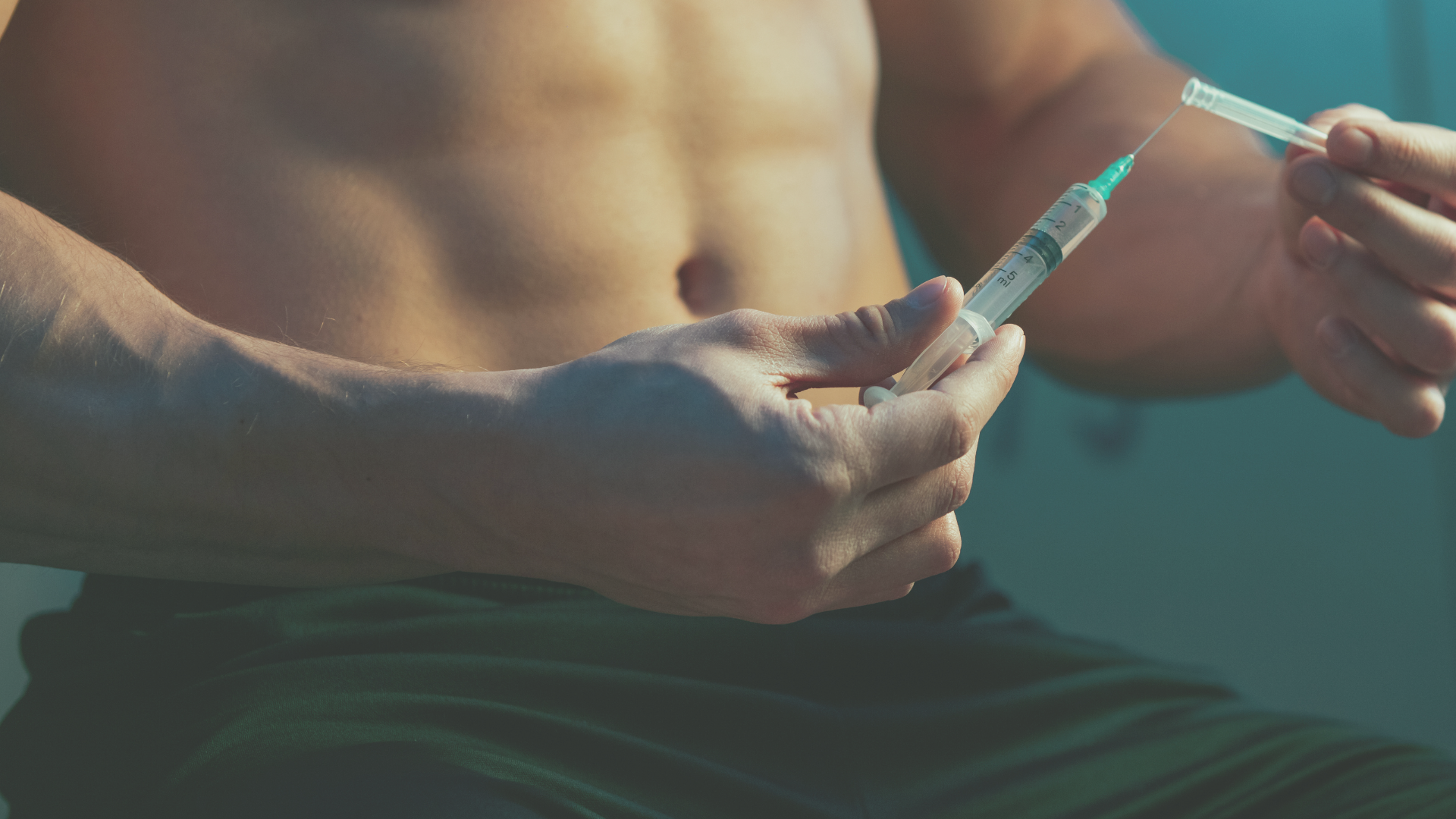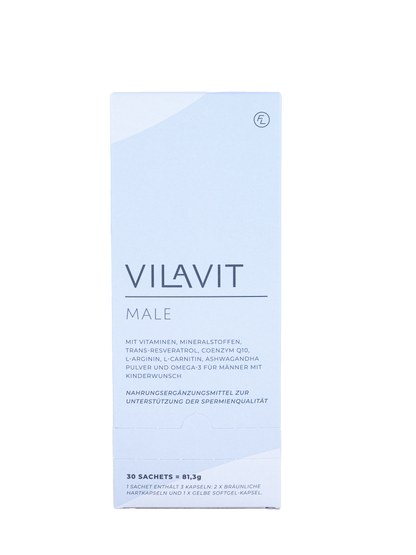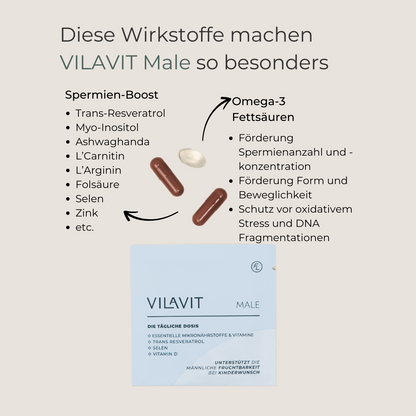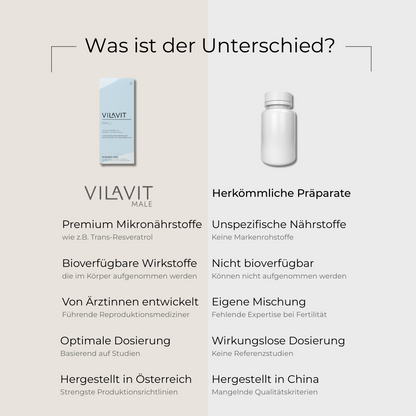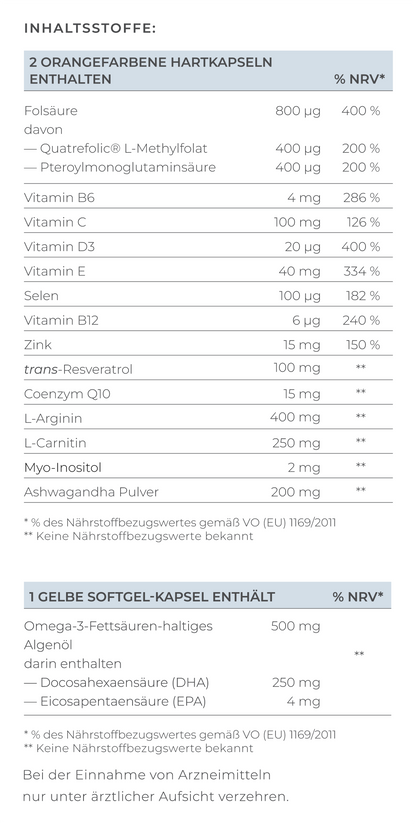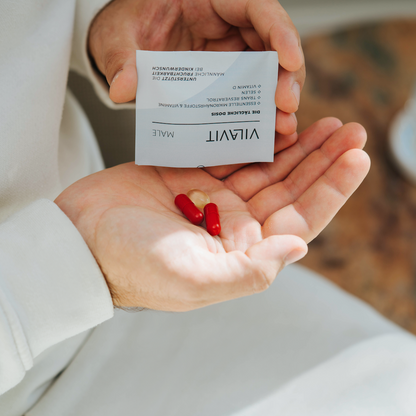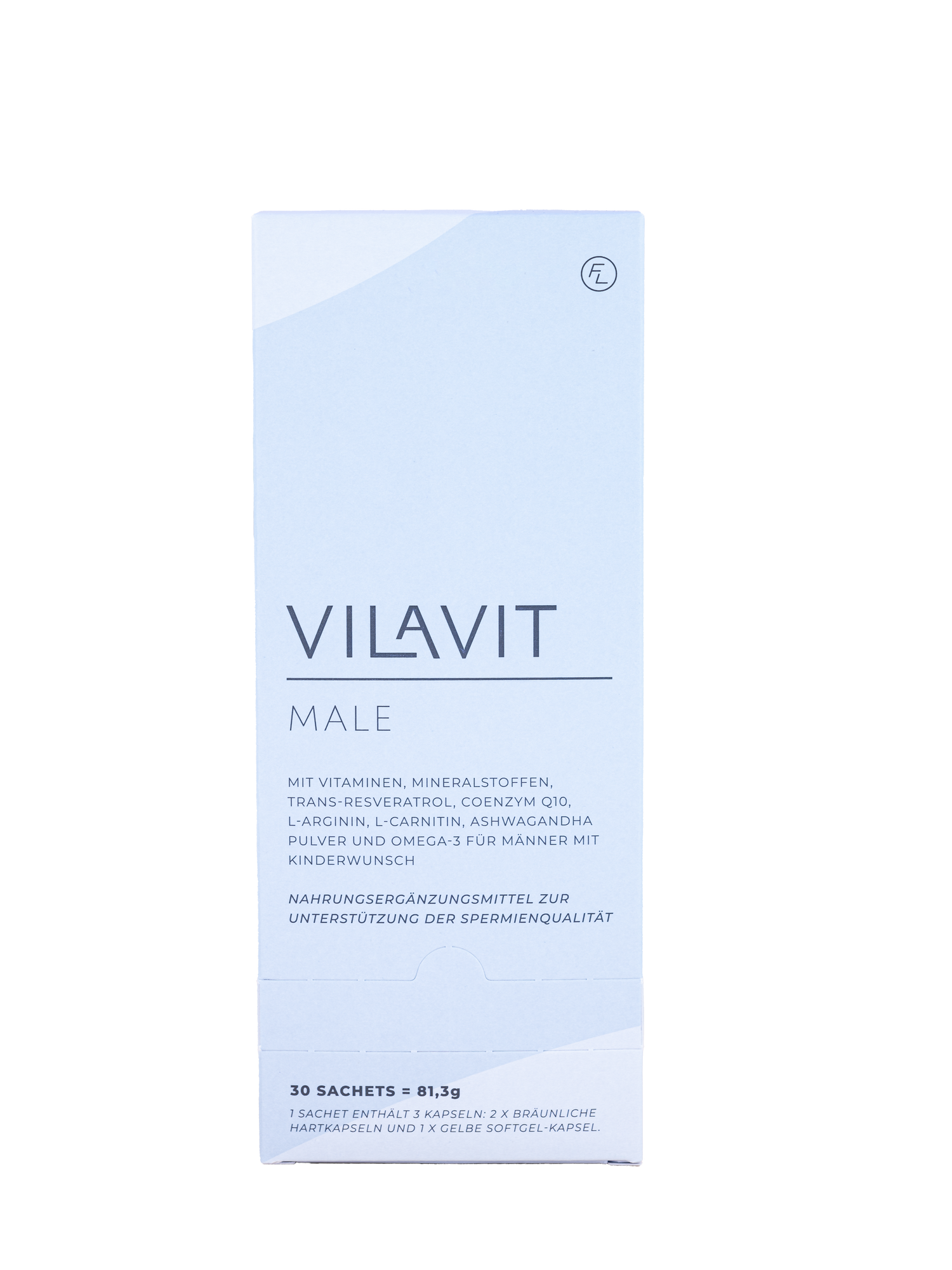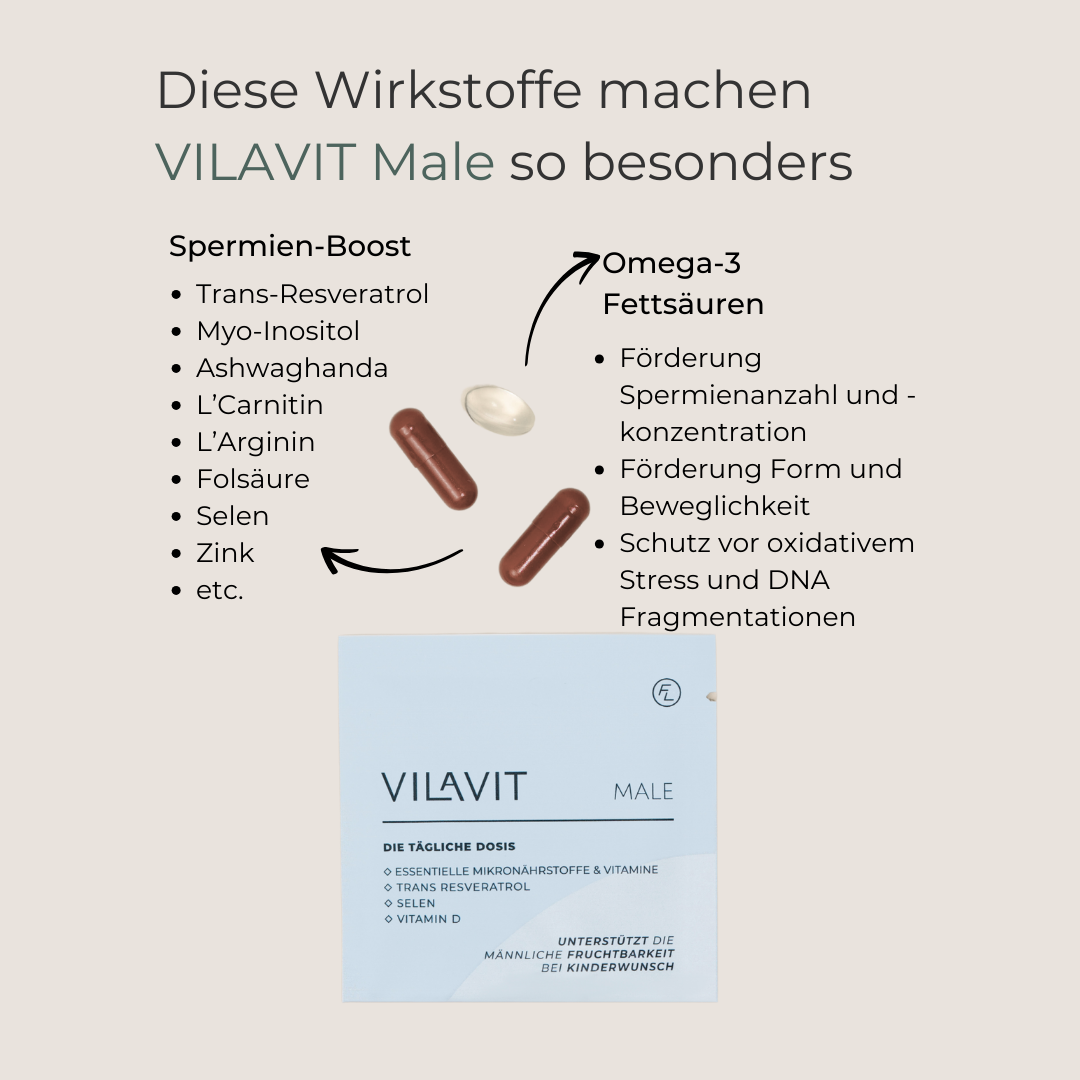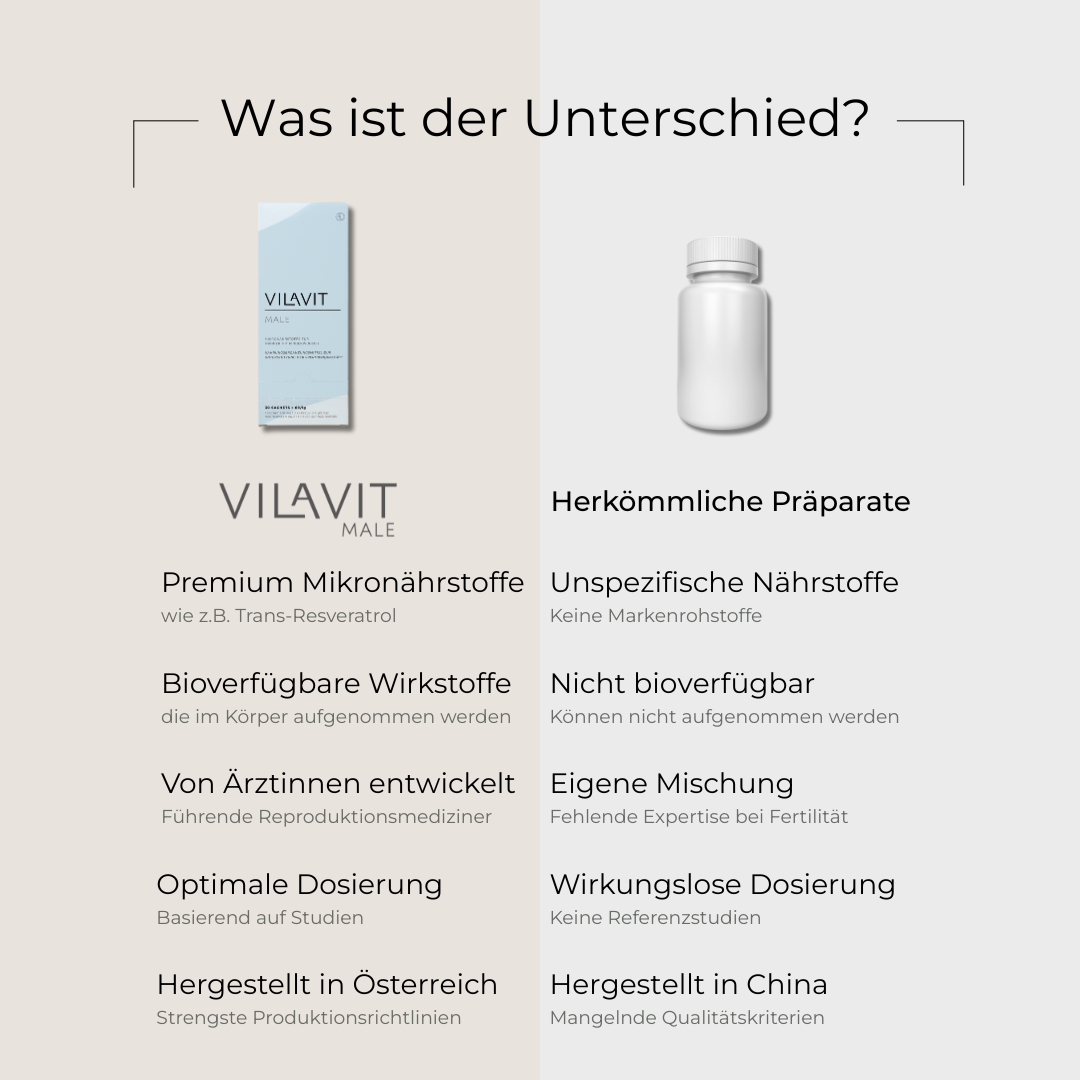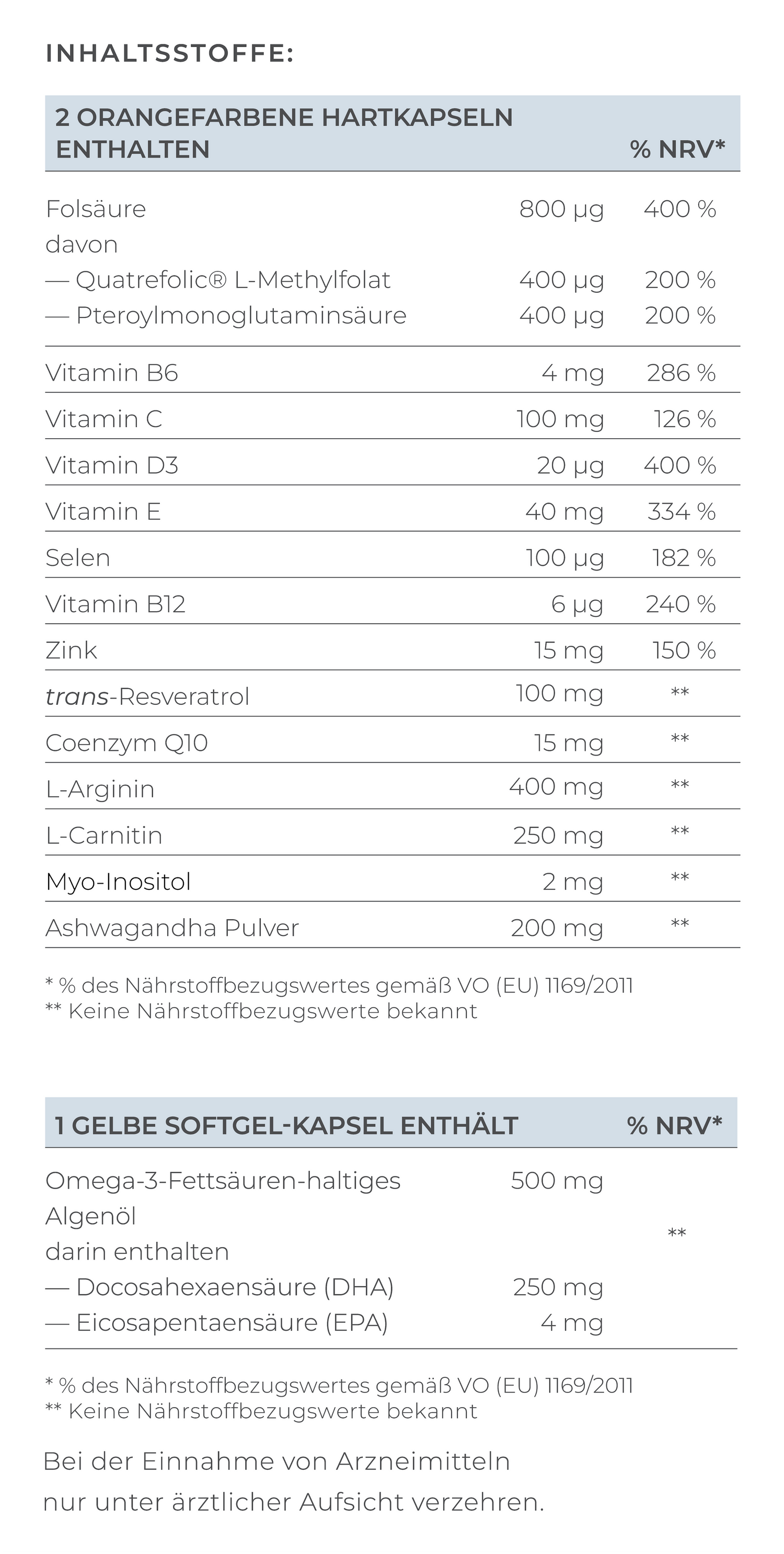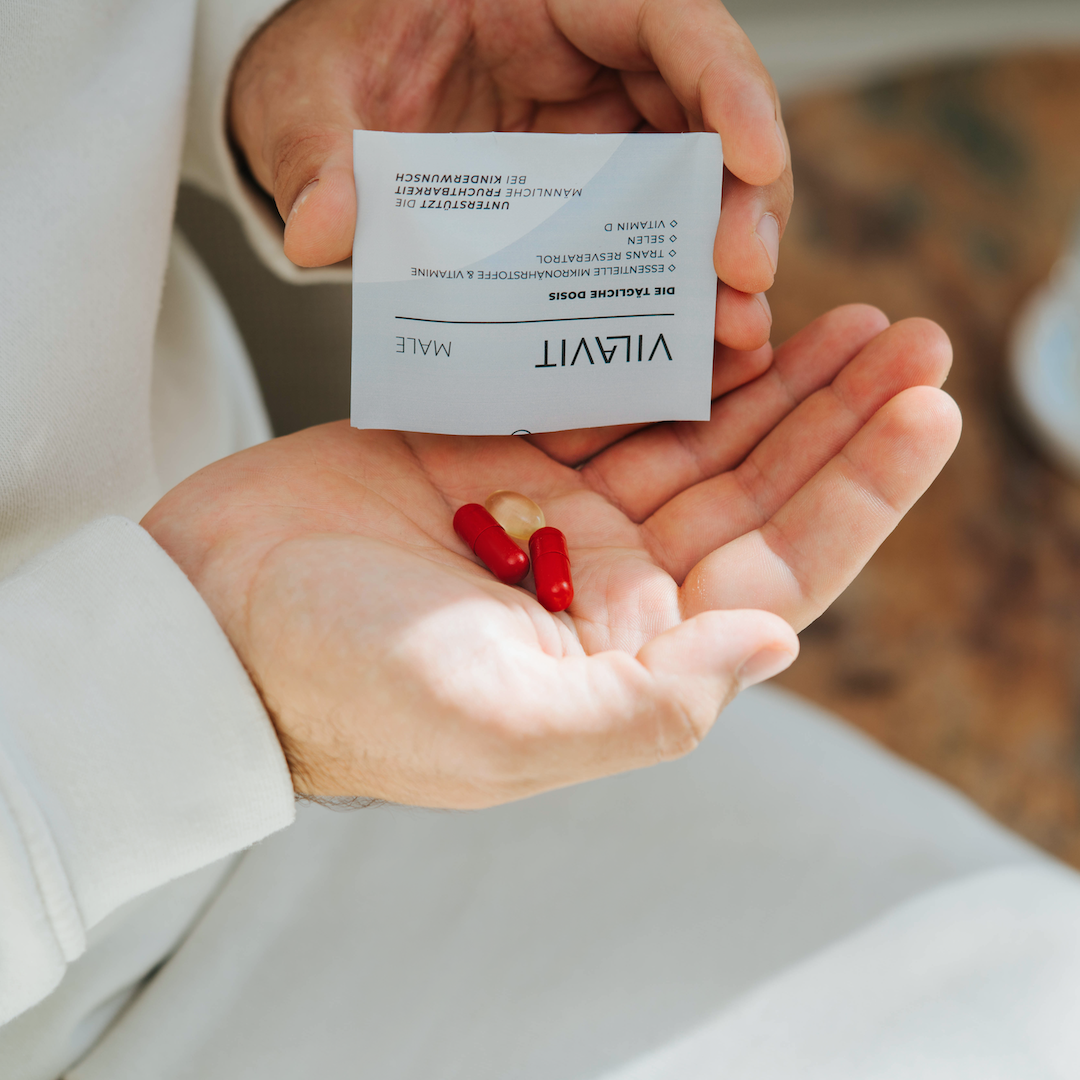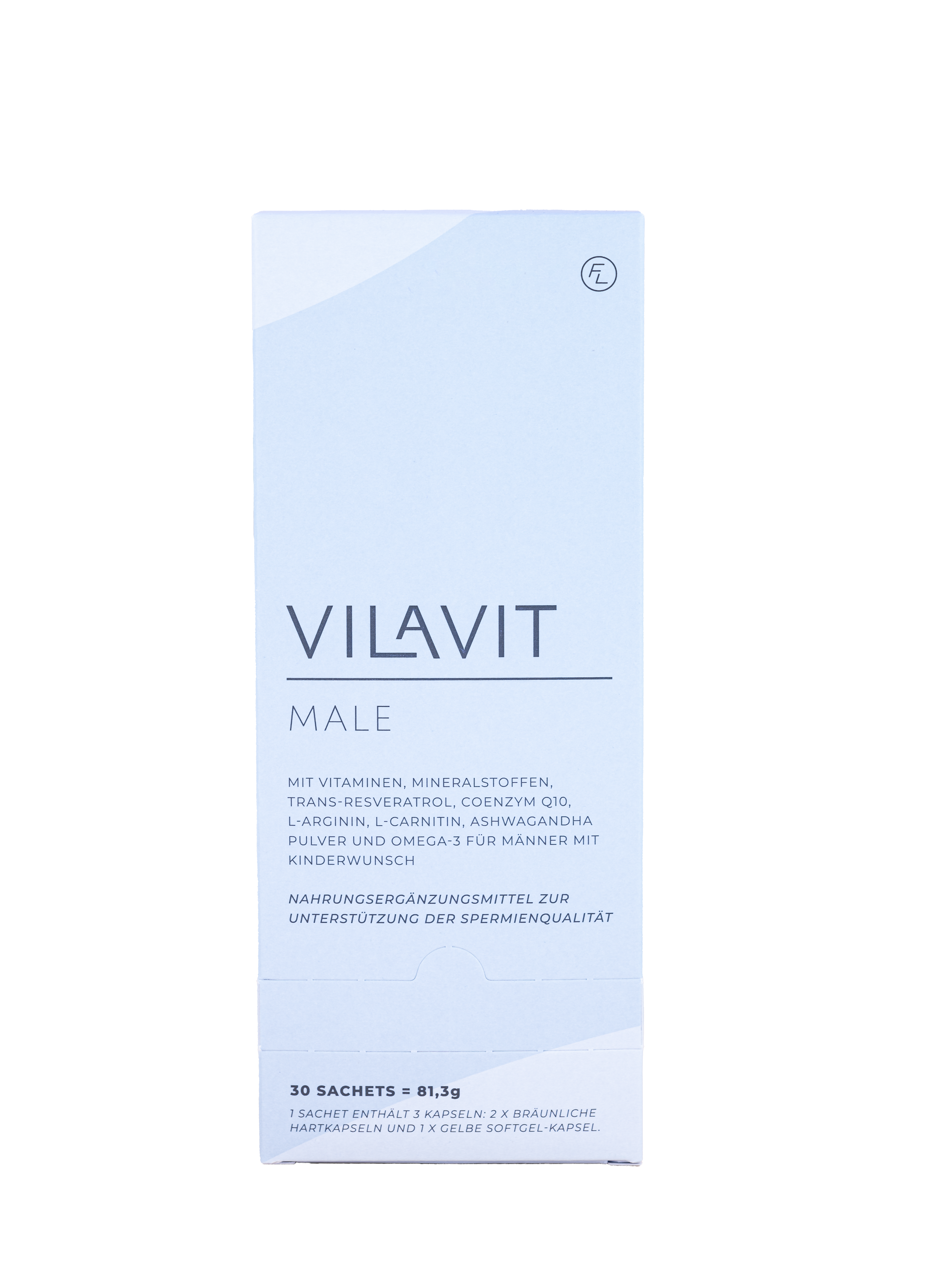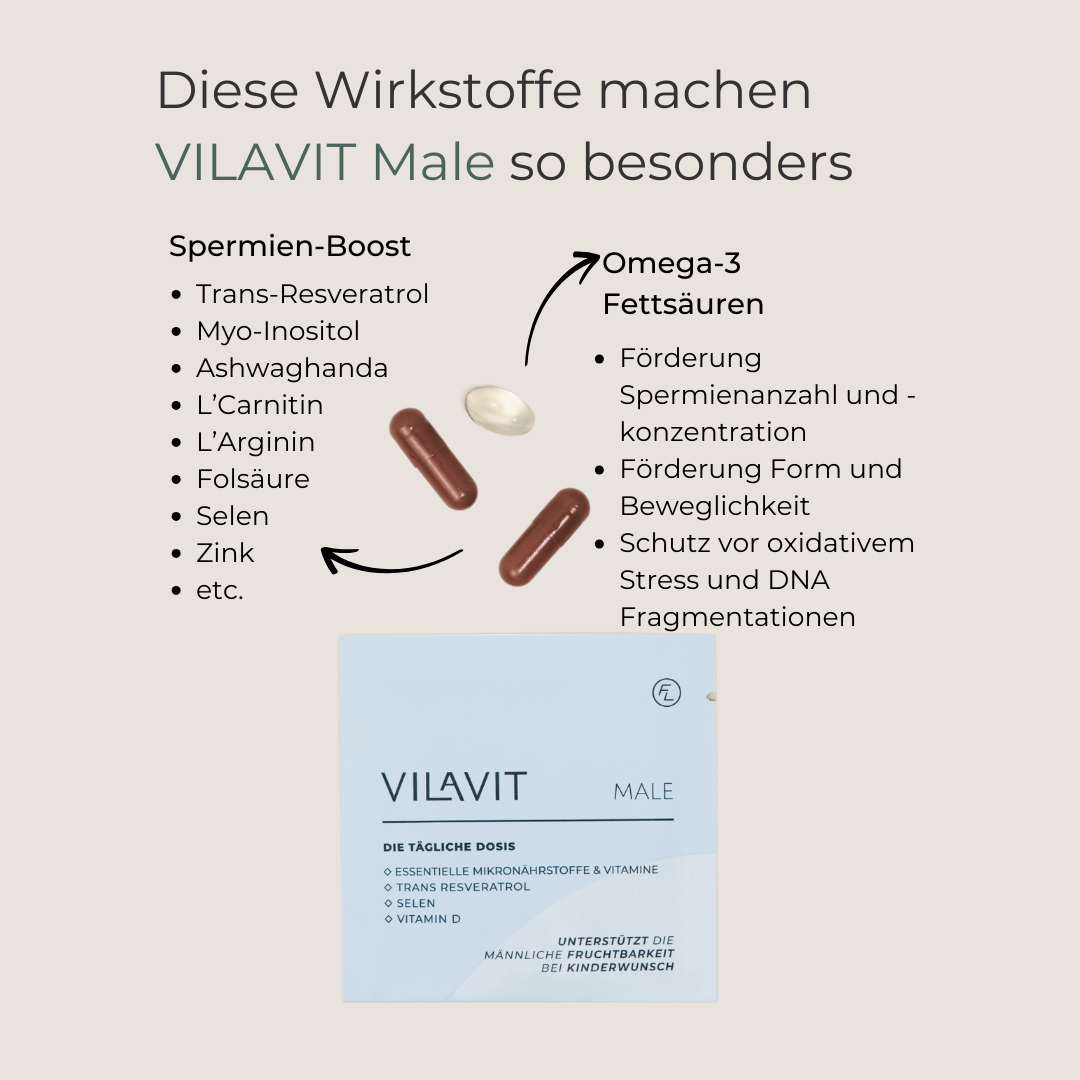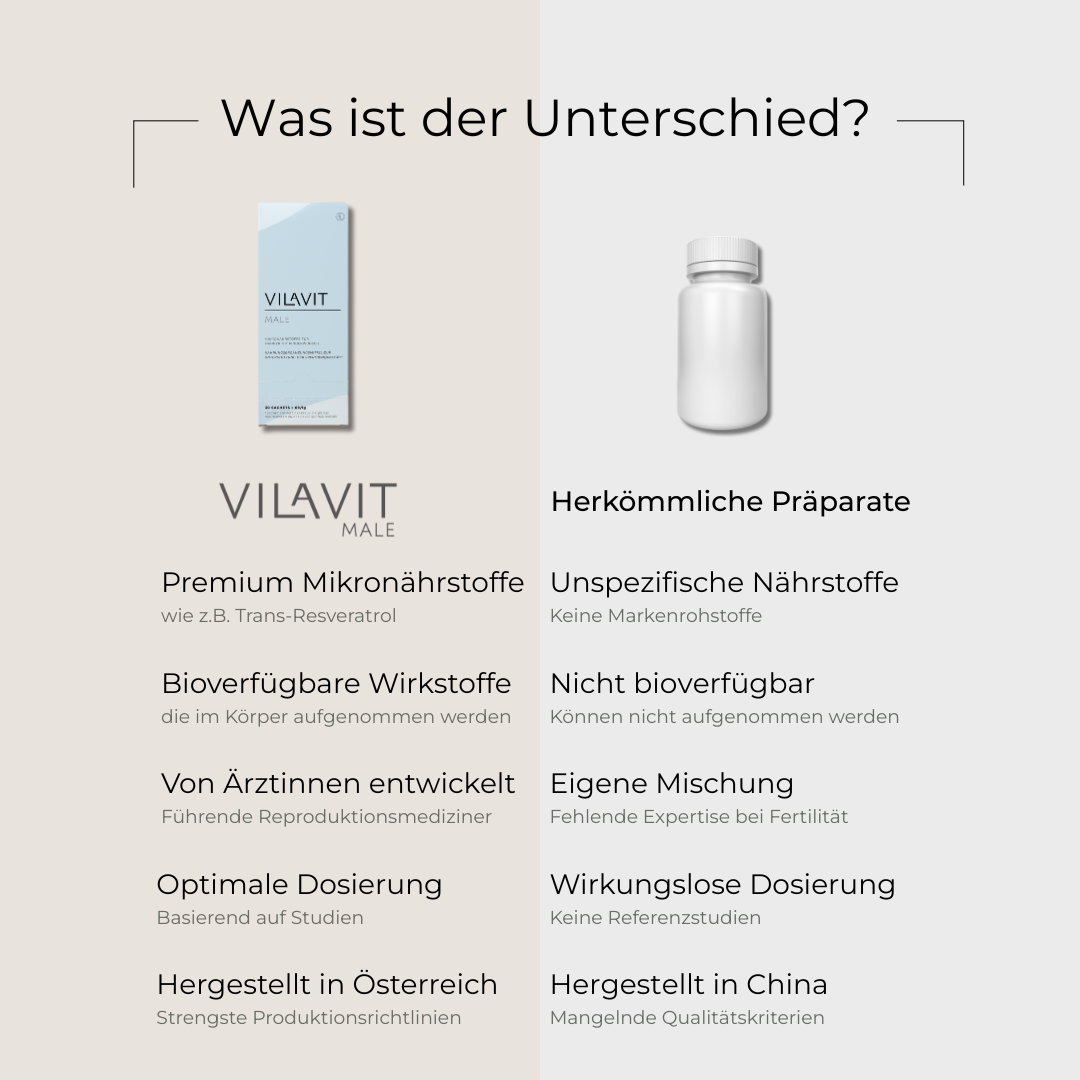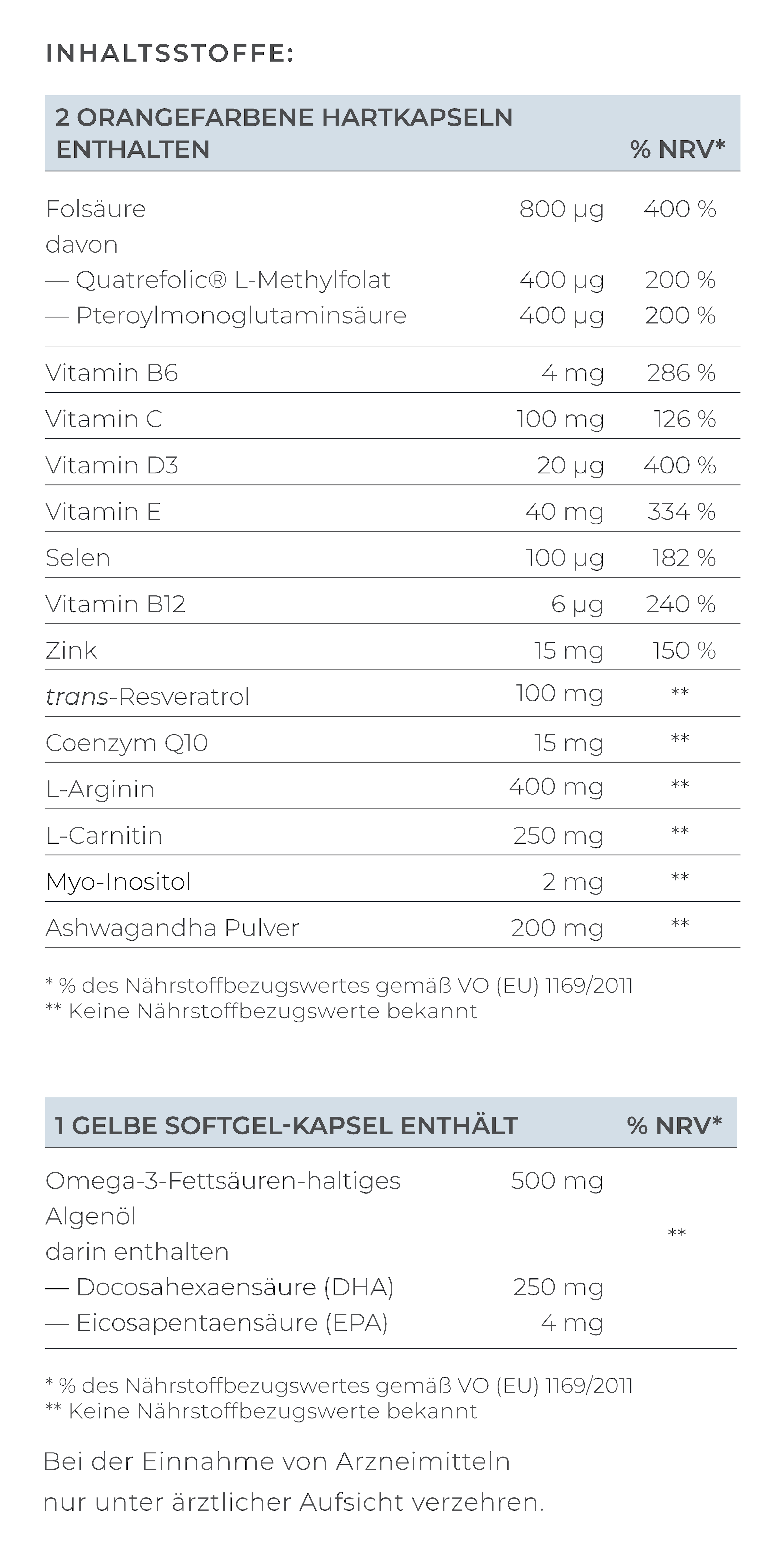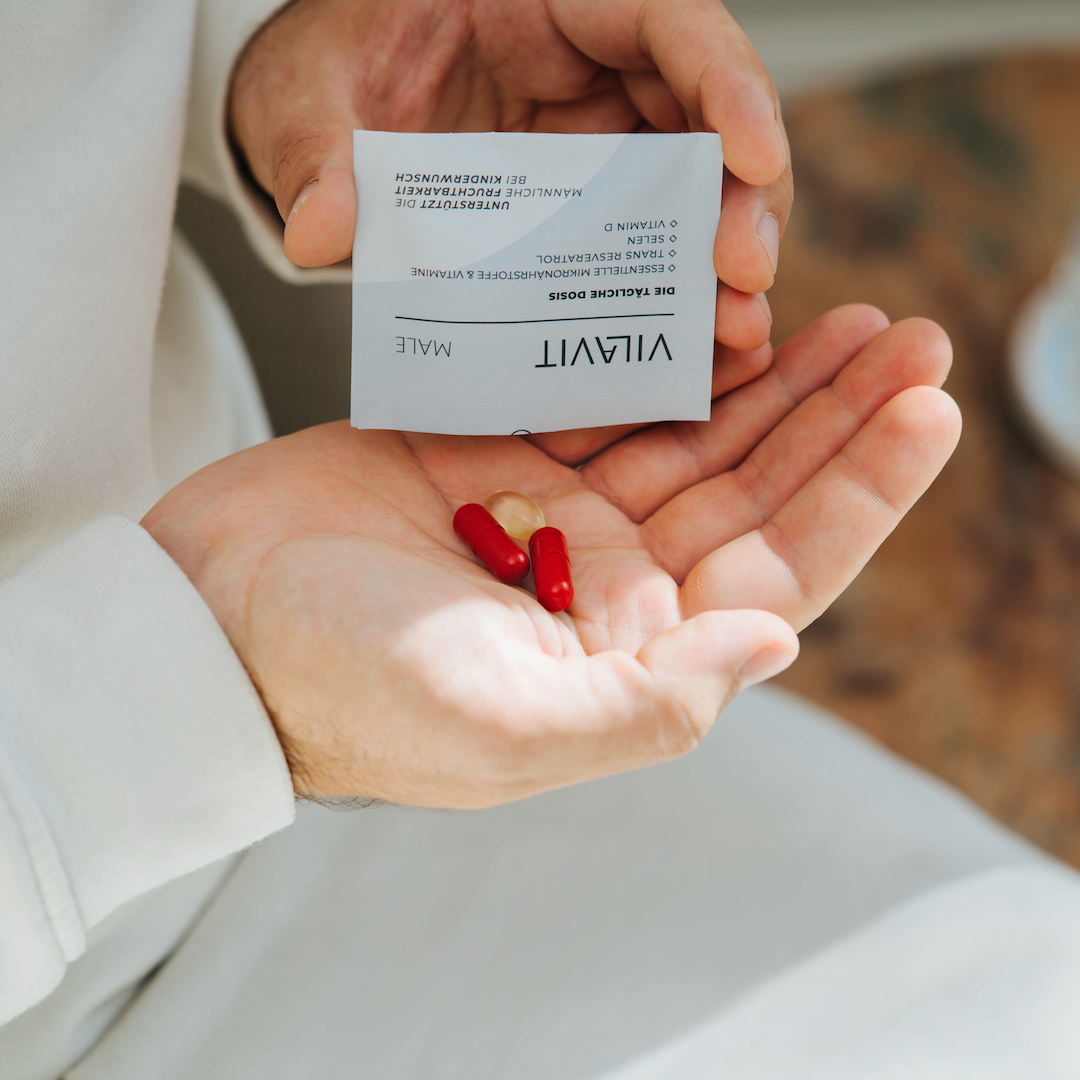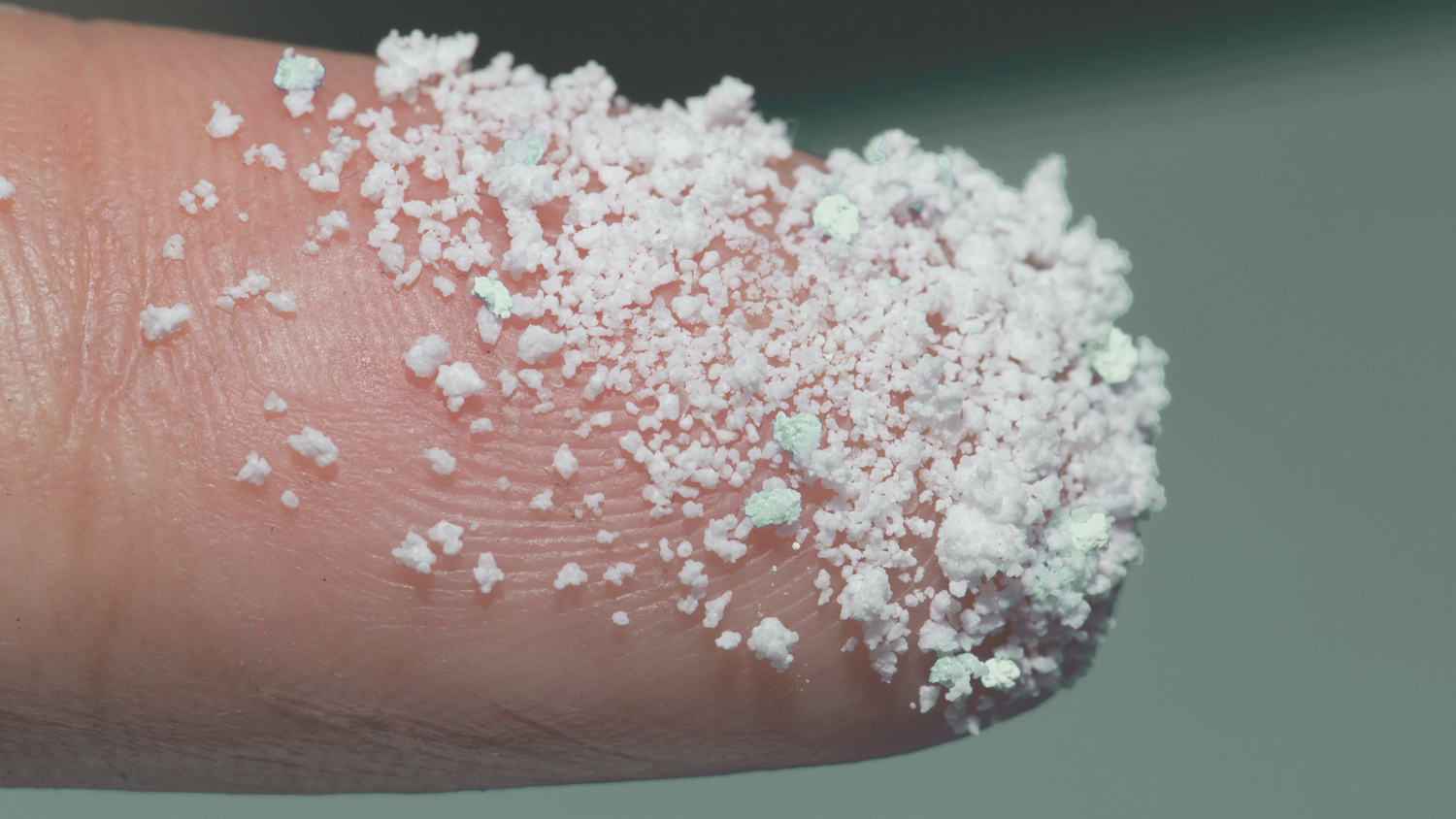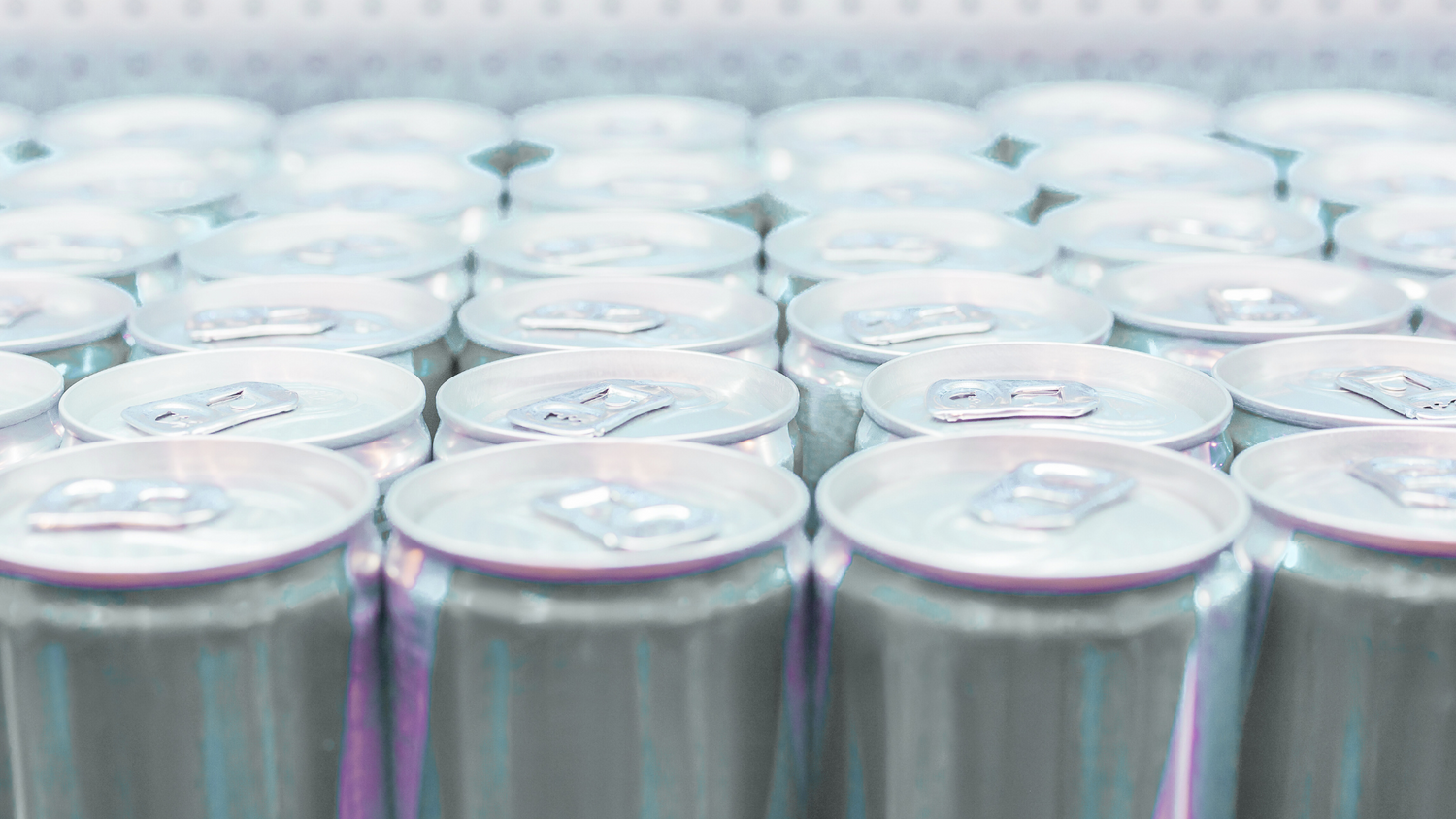The most important facts about anabolic steroids and wanting children:
-
Anabolic steroids are testosterone derivatives that are often used in strength sports.
-
They can lead to a drastic reduction in fertility—even infertility.
-
Some of the negative effects on fertility appear to be reversible, while others are not.
-
There is currently no approved treatment for men suffering from infertility due to anabolic steroid use.
Anabolic steroids and the muscle building that comes with them have been popular for several years, but men who want to have children in particular should refrain from taking anabolic steroids for the sake of their fertility: studies clearly show that they can massively impair sperm quality.
What are anabolic steroids?
Anabolic steroids is an abbreviation for anabolic androgenic steroids (AAS) and are testosterone derivatives, i.e., a substitute for testosterone. Anabolic steroids are particularly popular in strength sports to increase muscle mass and performance. Although the substance is approved for certain medical indications, it is not approved for the purposes mentioned above. In sports, the use of anabolic steroids (without medical indication) is also considered “doping.” (Ledesma, B.R., et al., 2023).
The (long-term) side effects of anabolic steroids have not yet been fully researched, but initial findings indicate that they include liver damage, heart disease, and psychological effects such as depression, aggression, or psychosis. In addition, there is growing evidence that anabolic steroids can also lead to infertility or at least greatly reduce fertility (Mulawkar, P.M. et al., 2023).
How do anabolic steroids affect fertility?
A study involving around 9,000 participants concluded that men who took anabolic steroids had significantly lower FSH and LH levels than men who did not take anabolic steroids.
This phenomenon could still be detected six months after stopping anabolic steroid use, but not after one year. However, one year after stopping anabolic steroid use, it was found that the testosterone levels of men who had previously taken anabolic steroids were lower than those who had not used anabolic steroids. In addition, the sperm motility of those who had taken anabolic steroids was reduced, as was the size of their testicles. However, according to the study authors, these effects are likely to be reversible within six months to three years after discontinuing anabolic steroids (Mulawkar, P.M., et al., 2023).
A study from Denmark came to similar conclusions and also showed that it was unclear whether men who had taken anabolic steroids were more likely to undergo artificial insemination than men who had not used anabolic steroids. However, whether artificial insemination is used is of course related to many other factors that this study did not examine (Windfeld-Mathiasen J., et al., 2021).
However, there are also less optimistic findings regarding the use of anabolic steroids and fertility: 520 men with a history of anabolic steroid use were examined over a period of one year. After three months, 18% of the men were diagnosed as infertile. Depending on the patients' wishes, either an unapproved treatment with hormones was carried out or fertility was simply continued to be examined and recorded. Patients who were treated showed a faster return to “normal” values in terms of hormones, testicle size, and sperm quality. However, although all men diagnosed as infertile received this treatment, only 15% of them were able to contribute to a successful pregnancy within one year. All of the men who were diagnosed as infertile due to azoospermia were still infertile after one year (Al Hashimi M., 2022).
Similarly, another Danish study gives cause for concern, suggesting long-term damage to Leydig cells. Leydig cells are hormone-producing cells in the testicles that produce testosterone, which in turn is necessary for spermatogenesis (sperm maturation). The level of serum insulin-like factor 3, or INSL3 for short, is considered a biomarker for Leydig cell function or the number of functional Leydig cells in men.
The scientists found that serum INSL3 levels remain low even years after discontinuing anabolic steroid use, regardless of testosterone levels. A reduction in the number of Leydig cells may therefore indicate reduced fertility. The results of the study therefore suggest that the number of Leydig cells and thus fertility may be reduced years after stopping anabolic steroid use (Rasmussen J.J., et al., 2021).
How can these problems be treated?
Unfortunately, there is currently no (approved) treatment for men who are struggling with fertility problems due to anabolic steroid use. First and foremost, of course, the use of anabolic steroids should be stopped if this is not already the case. After stopping use, sperm quality and quantity may improve again after a certain period of time (between 3 months and a year). If this does not happen or is insufficient, consultation with a specialist who ideally specializes in such complications should be considered. Artificial insemination can, of course, be a way to have the child you desire, but unfortunately, there is never a guarantee of success. Finally, lifestyle changes that improve fertility, such as a healthy diet, sufficient sleep, and regular exercise, can also help.
Frequently asked questions about anabolic steroids and fertility
Can anabolic steroids affect male fertility?
Yes, definitely! Taking anabolic steroids appears to cause a variety of problems with fertility, some of which are reversible and some of which are potentially irreversible.
How long does it take for the body to recover after discontinuing use and for “normal” fertility to be restored?
This varies greatly from person to person: anything from a few months to several years is possible. Some men may also suffer permanent fertility problems.
Can women also become infertile as a result of anabolic steroids?
The effects of anabolic steroids on women have been less extensively researched than those on men, but it can be assumed that women also suffer reduced fertility as a result of taking anabolic steroids.
Is there a treatment for fertility after using anabolic steroids?
So far, only various off-label treatments have been tested in studies—however, no approved treatment is available. Some doctors may offer off-label treatment if desired. Otherwise, a healthy lifestyle with a balanced diet, sufficient sleep, and regular exercise is recommended.
What should I do if I have used or am using anabolic steroids and now want to have children?
If you have not already done so, you should stop using anabolic steroids immediately and consult a specialist. If desired or necessary, initial examinations and possibly therapies – if available – can be initiated immediately. Either way, you will probably need a lot of patience until your body has at least partially recovered from the side effects of the anabolic steroids.
References
-
Ledesma, B. R., Weber, A., Venigalla, G., Muthigi, A., Thomas, J., Narasimman, M., White, J., & Ramasamy, R. (2023). Fertility outcomes in men with prior history of anabolic steroid use. Fertility and sterility, 120(6), 1203–1209.
-
Mulawkar, P. M., Maheshwari, P. N., Gauhar, V., Agrawal, S. G., Mohammed, T. O., Singh, A. G., Tak, G. R., Shah, U. S., Shukla, D. P., & Mamankar, D. (2023). Use of Anabolic-Androgenic Steroids and Male Fertility: A Systematic Review and Meta-analysis. Journal of human reproductive sciences, 16(4), 268–285.
-
Windfeld-Mathiasen, J., Dalhoff, K. P., Andersen, J. T., Klemp, M., Horwitz, A., & Horwitz, H. (2021). Male Fertility Before and After Androgen Abuse. The Journal of clinical endocrinology and metabolism, 106(2), 442–449.
-
Al Hashimi M. (2022). The deleterious effects of anabolic androgenic steroid abuse on sexual and reproductive health and comparison of recovery between treated and untreated patients: Single-center prospective randomized study. Andrologia, 54(11), e14576.
-
Rasmussen, J. J., Albrethsen, J., Frandsen, M. N., Jørgensen, N., Juul, A., & Kistorp, C. (2021). Serum Insulin-like Factor 3 Levels Are Reduced in Former Androgen Users, Suggesting Impaired Leydig Cell Capacity. The Journal of clinical endocrinology and metabolism, 106(7), e2664–e2672.


